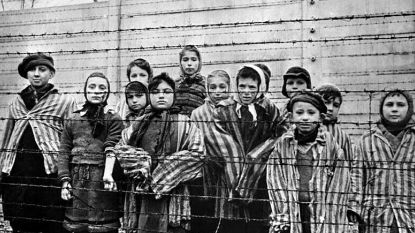Holocaust: A Dark Chapter (GS Paper 1, History)

Introduction
- The Holocaust stands as a stark reminder of the depths of human cruelty and intolerance.
- Initiated by Adolf Hitler's Nazi regime, it was a systematic, state-sponsored persecution and murder of approximately 6 million European Jews.
- The atrocities unfolded between 1941 and 1945, with early planning starting as early as 1933, coinciding with Hitler's rise to power.
Causes and Context
- The Holocaust didn't occur in isolation; it was rooted in a complex web of historical events and ideologies.
- Germany's defeat in World War I, the ensuing economic turmoil, and the rise of Hitler and the Nazi Party set the stage for this tragedy.
- The Nazis, driven by antisemitism and a quest for racial purity, targeted not just Jews but also other groups like homosexuals, Romani people, and individuals with disabilities.
Rise of Nazi Regime and Persecution
- Upon assuming power in 1933, Hitler swiftly moved to consolidate control and suppress opposition.
- Laws were enacted to strip Jews of their rights, and paramilitary groups terrorized Jewish communities.
- Events like Kristallnacht in 1938, marked by the destruction of Jewish-owned businesses and synagogues, signaled a dark turn.
The Final Solution
- The "Final Solution to the Jewish Question" was the culmination of Nazi plans for genocide.
- Jews were forcibly relocated to ghettos and then to concentration camps, where millions were subjected to forced labor and inhumane conditions.
- The most chilling aspect was the use of gas chambers in some camps, like Auschwitz, where over a million people, mostly Jews, were murdered.
World War II: A Global Catastrophe
- World War II, fought between the Axis and Allied powers, was one of history's deadliest conflicts.
- It was fueled by factors like the Treaty of Versailles, the failure of the League of Nations, the Great Depression, and the rise of totalitarian regimes.
- The war's outbreak was triggered by events like the German invasion of Poland and Japan's expansion in Asia.
Aftermath and Legacy
- The war's end brought about significant geopolitical shifts, with the USA and USSR emerging as superpowers.
- It also marked the start of decolonization, as former colonial powers faced challenges that weakened their grip on their empires.
Conclusion
- The Holocaust and World War II are somber reminders of humanity's capacity for evil and the horrors of unchecked extremism.
- They underscore the importance of vigilance against intolerance and the preservation of peace.
- As we reflect on these dark chapters, we must strive to learn from history and work towards a more just and compassionate world.


